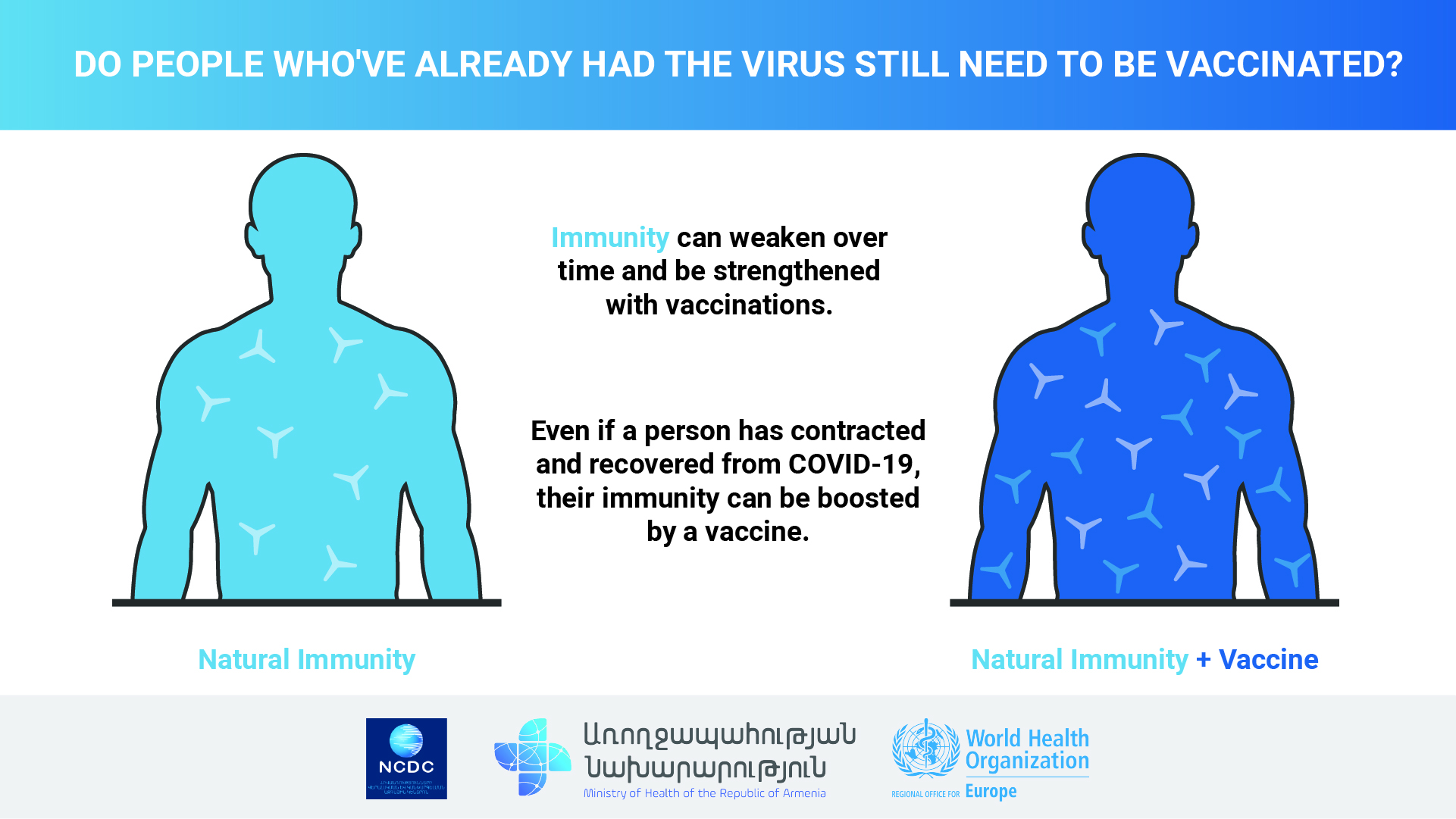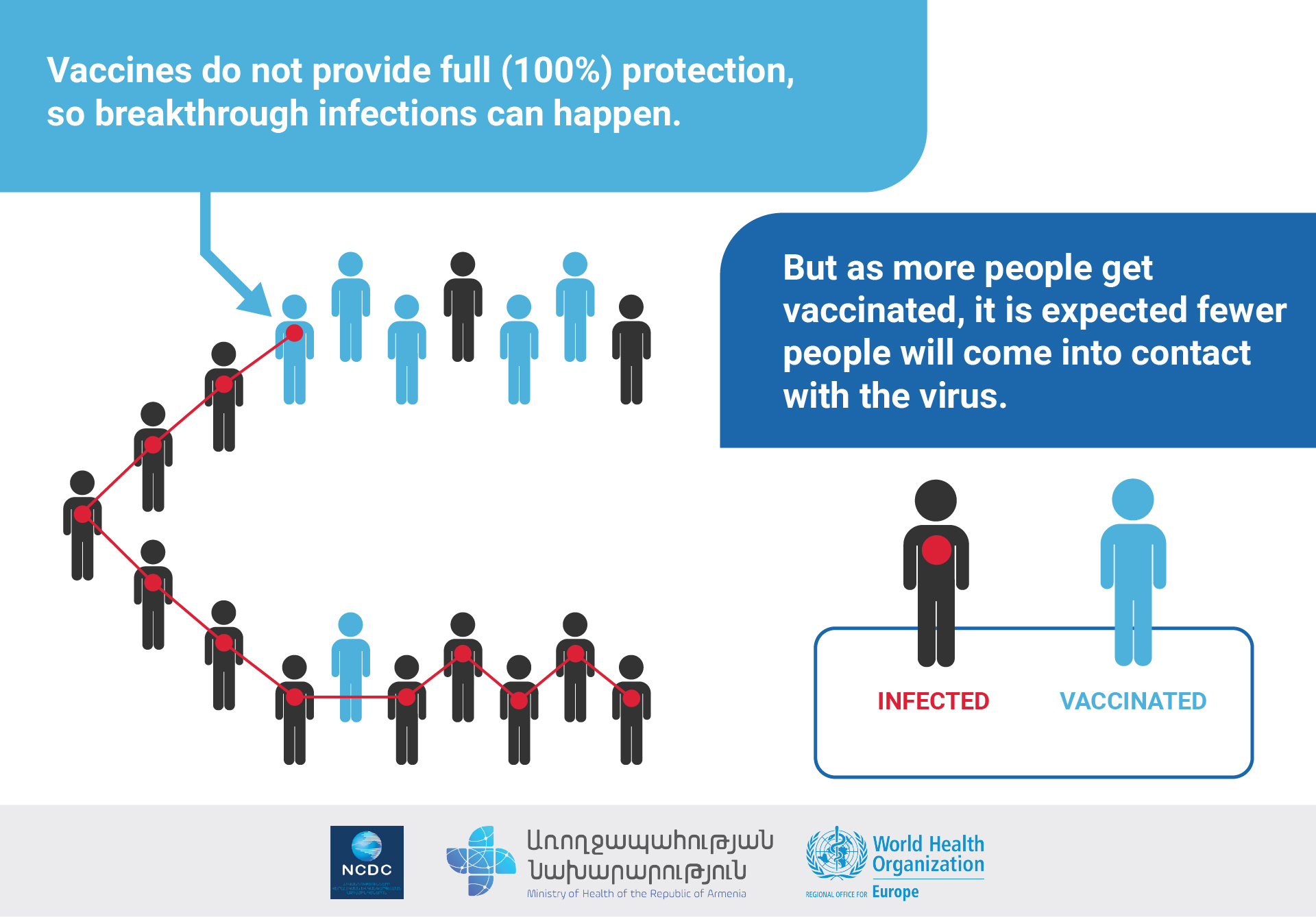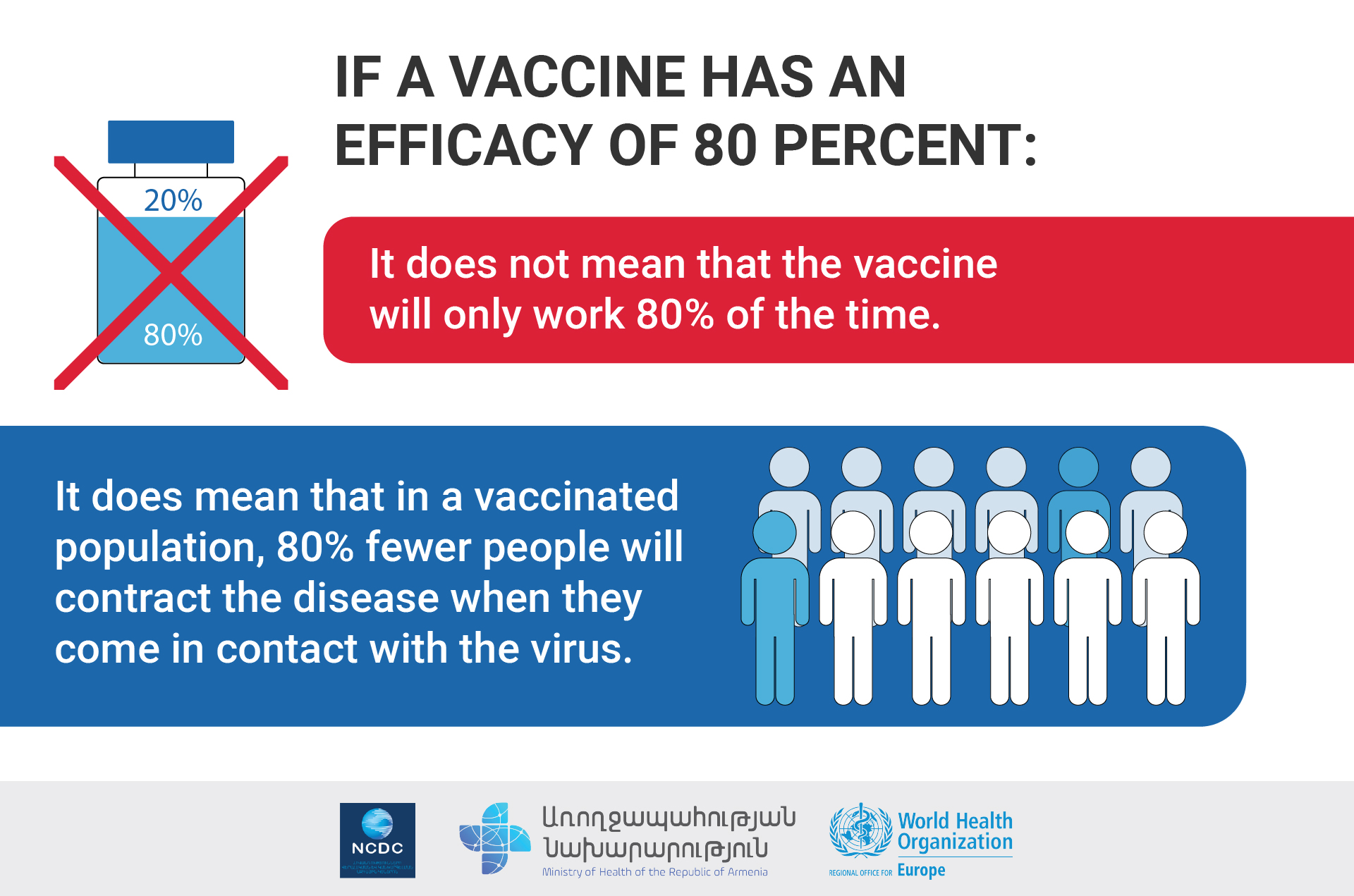Why get vaccinated?

Vaccines train our immune system to recognize the targeted virus and create antibodies to fight off the disease without getting the disease itself. After vaccination, the body is ready to fight the virus if it is later exposed to it, thereby preventing illness. People who have already been infected with SARS-CoV-2 should still get vaccinated unless told otherwise by their health care provider. Even if you’ve had a previous infection, the vaccine acts as a booster that strengthens the immune response. There have also been some instances of people infected with SARS-CoV-2 a second time, which makes getting vaccinated even more important 1:
 Getting vaccinated may also protect people around you, because if you are protected from getting infected and from disease, you are less likely to infect someone else. This is particularly important to protect people at increased risk for severe illness from COVID-19, such as healthcare providers, older or elderly adults, and people with other medical conditions2:
Getting vaccinated may also protect people around you, because if you are protected from getting infected and from disease, you are less likely to infect someone else. This is particularly important to protect people at increased risk for severe illness from COVID-19, such as healthcare providers, older or elderly adults, and people with other medical conditions2:
 A growing body of data suggests that most vaccines stimulate enough immunity to retain substantial efficacy against most variants, especially for severe disease, hospitalization, and death. The impact of the variants on efficacy against mild disease and against infection without disease is more impacted than for the more severe outcomes. The reason vaccines substantially retain protection against disease is likely related to the broad immune response they induce, which means that virus changes or mutations are unlikely to make vaccines completely ineffective.
A growing body of data suggests that most vaccines stimulate enough immunity to retain substantial efficacy against most variants, especially for severe disease, hospitalization, and death. The impact of the variants on efficacy against mild disease and against infection without disease is more impacted than for the more severe outcomes. The reason vaccines substantially retain protection against disease is likely related to the broad immune response they induce, which means that virus changes or mutations are unlikely to make vaccines completely ineffective.
 COVID 19-vaccines are effective. They can keep you from getting and spreading the virus that causes COVID-19. After you are fully vaccinated for COVID-19, you can resume many activities that you did before the pandemic. You can resume activities without wearing a mask or staying 6 feet apart, except where required by government regulations, including local business and workplace guidance3.
COVID 19-vaccines are effective. They can keep you from getting and spreading the virus that causes COVID-19. After you are fully vaccinated for COVID-19, you can resume many activities that you did before the pandemic. You can resume activities without wearing a mask or staying 6 feet apart, except where required by government regulations, including local business and workplace guidance3.

